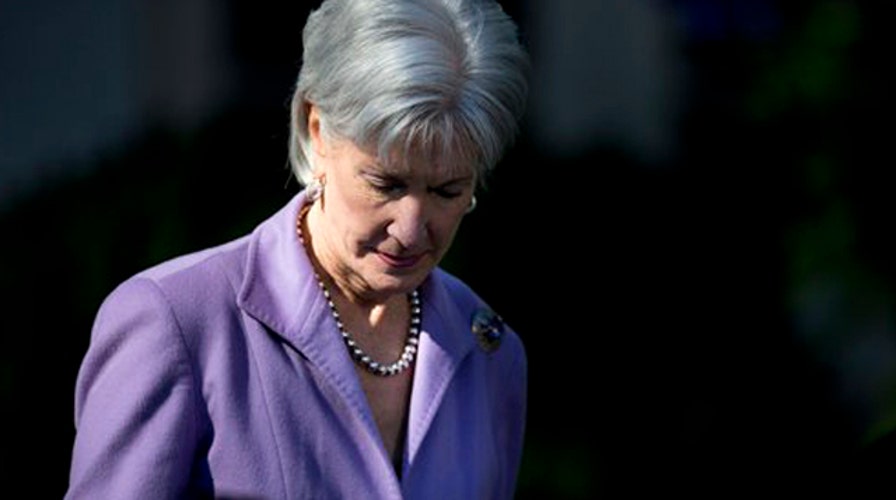Now that the president has lost the “Morning Joe” crowd, ObamaCare may be in even deeper political trouble than we thought.
The MSNBC chatfest is generally sympathetic to the administration. And Joe Scarborough, a former Republican congressman, has been training most of his fire on members of his party who led the ill-fated government shutdown.
But with the feds back in business, and the media spotlight predictably back on the bungled health care effort, the punditocracy has really turned on the rollout that President Obama felt compelled to defend at a White House event yesterday.
Mark Halperin, the “Game Change” coauthor and a regular on Joe’s show, called the rollout “unacceptable” and added that “the secrecy is unacceptable,” accusing the administration of withholding information about how many people have signed up.
His fellow panelist, liberal commentator Mike Barnicle, ratcheted up from there: “They’re lying about it now,” he said. “They’re not depriving us of information, they are outright lying.” The former Boston Globe columnist called the administration’s conduct “unacceptable.”
On “CBS This Morning,” the network’s political director, John Dickerson, calls the rollout “a total fiasco,” saying the administration is getting into a “credibility death spiral.”
This is, to put it mildly, a very difficult media environment. It’s not that all these pundits have turned against the idea of health insurance exchanges; it’s that they believe the execution has been badly botched.
To them, the issue is incompetence—an easier target for journalists wary of taking an ideological stance.
Obama’s speech yesterday was not the mea culpa some had predicted. He vowed to fix what he called “kinks” in the system, but generally delivered an upbeat defense of the program.
As liberal Washington Post blogger Ezra Klein tweeted in mid-address, “So far, this seems weirdly similar to the speech Obama would’ve given if the exchanges were working fine.”
But they’re not working fine, and White House reporters pressed Jay Carney aggressively about what the president knew, when he knew it and whether the administration owes the country an apology. (During the shutdown, you’ll recall, the press corps didn’t ask the president a single ObamaCare question at a news conference.)
The New York Times, which has been doing solid reporting on ObamaCare’s problems, dropped this latest bomb: “Federal contractors have identified most of the main problems crippling President Obama’s online health insurance marketplace, but the administration has been slow to issue orders for fixing those flaws, and some contractors worry that the system may be weeks away from operating smoothly, people close to the project say.”
And Politico doesn’t pull punches in assessing the fallout:
“It’s not the GOP that President Barack Obama has to worry about in defending his botched health care rollout, it’s fellow Democrats.
“They voted for the law, sang its praises for three-plus years and still believe in the promise of health care reform. But now they face a conundrum: stay in lock step with Obama and risk their credibility as advocates for the law’s benefits or publicly criticize the administration for its recent problems — especially a failure to more quickly acknowledge, and rectify, the major malfunction of its Internet marketplace.”
Conservatives, who have always hated the program, are very much in I-told-you-so mode. But even the administration’s natural media allies are finding the rollout hard to defend, at least for now.
Technology and Journalism
Some interesting thoughts from eBay founder Pierre Omidyar, interviewed by the NYT’s David Carr, on the new journalism venture he is underwriting, perhaps with as much as $250 million:
“We’ve lived in Hawaii for about seven years and I saw a gap in coverage as newsrooms were merging — there was a real reduction in reporting capacity and so I felt it was critical to just build a newsroom that is exclusively focused on public affairs. I wanted to get my hands dirty learning what it’s like to work with journalists and editors day in and day out, to see how the sausage is made. Through that experience, I saw firsthand the impact that really good investigative stories have at every level and so this is the next step in a very long journey.”
And a clue to what attracted Omidyar to his new partner, Glenn Greenwald:
“Even before the Snowden leaks, we saw a number of what I would characterize as missteps by the Justice Department. We saw the Justice Department wiretap the A.P. newsroom. We saw [Fox News reporter James] Rosen being labeled as co-conspirator label in affidavits; we see the many leak prosecutions including the use of the Espionage Act. It alerted me to the fact that even in this great country of ours with this fantastic Constitution, there’s a real pressure against press freedoms that’s going on. Perhaps unintentionally in the hot pursuit of leakers and trying to protect secrets, we are really putting pressure on press freedom here. When you have mass surveillance, it’s impossible to meet the intent of the First Amendment because reporters can’t talk to sources because sources are afraid to talk.”
Whether Omidyar (and Jeff Bezos at the Washington Post, which Omidyar also considered buying) can help reinvent the news business is a fascinating challenge.





